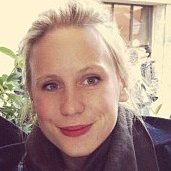Please start by introducing yourself
My name is Fiona Redding. I started at Royal Holloway in 2007 on a BA English Literature programme, graduating in 2010. After my BA, I started working at the College as an Alumni Relations Officer. I am now the Change Communications Officer, and have just completed my Masters in Modern Philosophy.
How long have you been at Royal Holloway?
This September marked the beginning of my seventh year at Royal Holloway!
What is your role here?
Creating a cohesive and beneficial staff culture is critical if we are to succeed as a university in the long term – you cannot underestimate the importance of gaining acceptance of proposed changes amongst your colleagues across the College. My role involves writing communications strategies for the major change projects we have going on, including the Governance Review, the Masterplan, and staff engagement more broadly.
What did you want to be when you were little?
I really wanted to be a figure skater. Unfortunately I was completely lacking in the co-ordination and grace to achieve such a goal!
Do you have any hero (es), and why?
I really admire my Dad. He could easily have gone to university and trained to be a doctor, but when circumstances prevented him from doing that, he found other ways to develop professionally. That kind of flexibility, not being disheartened if the route you wanted to take isn’t an option, and ultimately succeeding in spite of these obstacles, are all traits I really admire.
What’s your degree/masters etc. in? Could you explain a bit about a MRes?
My Masters is in Modern Philosophy. My tutor was Andrew Bowie in the Politics, International Relations and Philosophy Department. He tutored me for a final year course and I got on with him really well, so he was the obvious choice when it came to applying to a supervisor for my Masters.
The difference with an MRes is that you are working pretty much independently the whole way through your course, so you have to create opportunities to interact with other researchers. I was studying part time over two years, so I had possibly even less interaction than one might expect on a Masters programme. As well as optional tutorials given by Andrew and Neil Gascoigne, another Philosophy Lecturer, I attended a reading group, seminar programmes, anything that brought me into contact with people working in my area of interest.
The whole way through, I was working towards completing a 35,000 word dissertation, on a topic of my choosing. There was a short 5,000 word essay mid-way through the course – to check you are on the right track – but apart from that there was everything to play for on the dissertation.
What advice do you wish you’d known when you were studying for your MRes?
The best piece of advice I can give you is to write something every day. That doesn’t have to mean a 5,000 exegesis closely related to your dissertation; it could be 500 words. The key point is that you are engaging your brain. For me, that came through writing a blog: philosophymasters.wordpress.com (link)
What was the hardest thing you found about studying?
I’ve alluded to the independent study, which can be tough at times, particularly when you just need to talk things through with someone whilst writing a key paragraph, or talking more broadly about your argument to ensure you have an overarching theme. But this can be overcome. Of course, your supervisor is also a key part of the feedback process as well.
